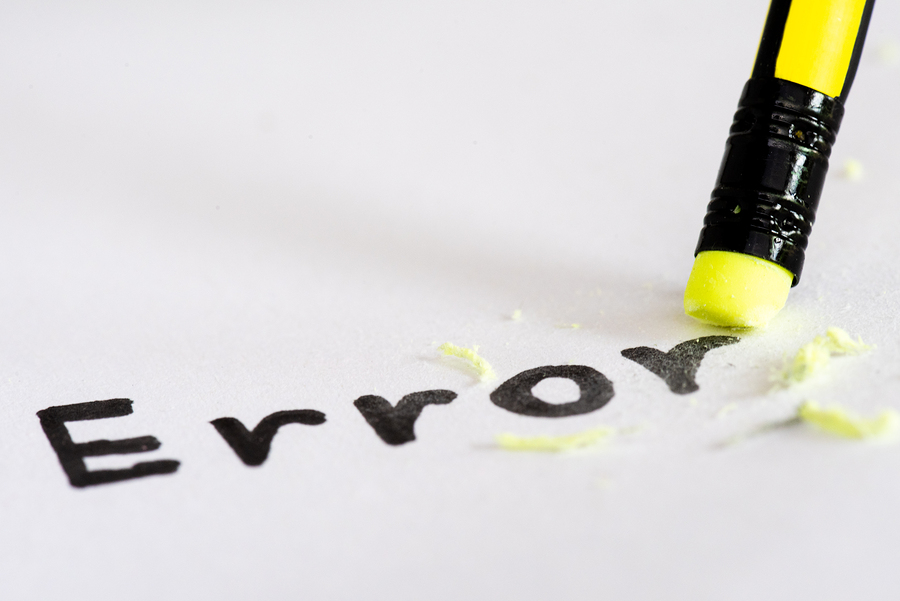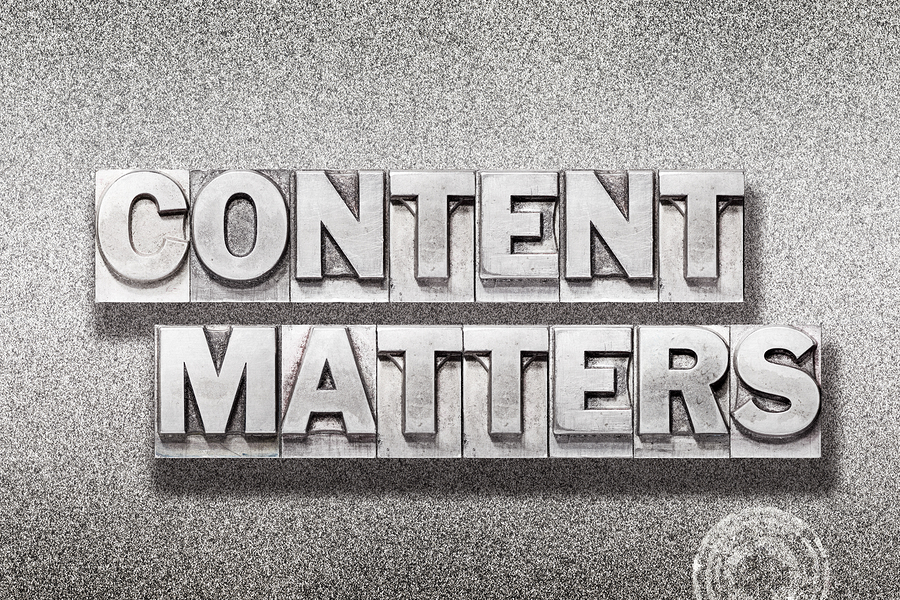The infographic below from GrammarCheck.com is a fantastic reminder of commonly misused words.
They did miss one. I have to pause every time before I write “affect” or “effect.” Vocabulary.com reads, “Most of the time, you’ll want affect as a verb meaning to influence something and effect for the something that was influenced. The difference between affect and effect is so slippery that people have started using “impact” as a verb instead. Don’t be one of them! Another trick is to remember that affect comes first alphabetically, and an action (to affect) has to occur before you can have a result (an effect).”
Another I see misused is “advise” vs. “advice.” Dictionary.com reads, “Advise is a verb meaning “to give counsel to; offer an opinion or suggestion as worth following.” Advice is a noun meaning “an opinion or recommendation offered as a guide to action, conduct, etc.”
By the way, “advized” is not a word!
Do you have any you can add to this list? Feel free to join the fray in the comments section below.

Source: www.grammarcheck.net





I hope I don’t sound picky but I’ve noticed Americans say “how fun”, whereas we Aussies say “what fun”. Also this, “we use to” instead of “we used to go somewhere”.
I don’t use “how fun” and never have. Never even heard the phrase, and I’ve been all over the U.S.A. Born in WI, raised in IL, lived in OH, MO, CA, FL, TX, and have traveled to all but six states in the U.S.A. But never heard that one.
Yeah, she’s correct. It is a shortened version of “Well, how fun is that?”
And “use to” as opposed to “used to” is just poor spelling – not legit in any context.
Whew! I felt like afool rushing in here. 🙂
My relatives in central Minnesota often use “How fun.” It’s also heard in the Rocky Mountain states. I’ve lived all but 10 years of my life in Idaho or New Mexico. I think I’ve heard “how fun” more than “what fun,” but I wasn’t keeping a tally. I’m more likely to say how than what, but I use both because I hang out with people who do have fun.
I saw this one this weekend:
Principal–most important or influential (adjective) or the person in charge (noun–as in, the school’s principal.)
Principle–a fundamental truth. (as in, he was a man of strong principles.)
Steve, I’m not sure you want to get me started here. My students mix up “our” and “are,” “whether” and “weather,” and “you’re” with “your.” I think they sometimes write like they talk- with southern accents.
Well, y’all need ta git that straightened out!
My problem is with vice vs. vise every time because of the way it’s spell. And that reminds me. Its vs. it’s is also a problem for me. My fingers always want to put that pesky apostrophe into the possessive it. My editor has a time. LOL
Banter for dicker (double confusion, because banter is a misuse for barter, which means trade).
OK, question – should it be ‘an historic/historical event’, and not ‘a’? Or am I once again behind the times?
Two words that I often see misused are ‘wound’ and ‘injury’. A wound is generally caused by a projectile or blade – gunshot wound, knife wound, shrapnel wound (more usually called frag, now…poor Henry Shrapnel, perhaps doomed to trivia?).
An injury is ‘closed’; a contusion, concussion, broken bone (a compound fracture in which the bone pierces the skin is still an injury).
Another term that I often see misused is ‘night vision’. It doesn’t really let you see in the dark.
You need some kind of illumination – passive night-vision systems (PNVS, pronounced pn-vis) amplify ambient light (and turn it into a green image, which the human eye can best differentiate). They don’t work in a no-light cellar.
For that, you need either infrared or thermal capability; with infrared, you shine an infrared ‘flashlight’, and your vision system picks it up. Then you can tag your oppo with an infrared laser to mark point of aim, and he’ll be blissfully oblivious…unless he’s got the tech as well.
Thermal looks for heat sources, and thus contrast, to do the ‘let there be light’ thing. Thermal can see through smoke, fog, and light rain to a limited degree, but can’t see through walls or windows (windows are opaque to long-wave radiation).
Only I fed the dog.
I only fed the dog.
I fed only the dog.
I fed the only dog.
I fed the dog only.
And still the dog is hungry…
Starving!!! 😉
The one I notice most often is it’s and its. I was taught to only use it’s if you are contracting it is. Example – It’s too early to wake up. Use its for possession. Example – The cat licked its leg.
“Lead” and ‘led.” I can’t begin to name the number of times someone speaking in past tense will write, “With great wisdom and strategy, Hillary lead her team to victory.” Well, Hillary may lead her time sometime in the future. Or she may be leading it now. But she could only have LED it in times past. (There is, of course, the element, “lead” (Pb), number 14 in the Periodic Table. But is it possible to turn lead into a verb?)
Why not? We turned iron into a verb.
Lay and LIe are confusing to many.
I love “Grammar Girl.” https://www.quickanddirtytips.com/education/grammar/lay-versus-lie
Andrew, “a historic” caught my eye, too. I would say “an historic event,” or “an historical place,” but “a history book…”
Affect and effect always trip me up. I admit that I tend to avoid them. haha
Robin, when I was a kid I was taught that the principal was my “pal,” and have used that simple reminder to differentiate between principal and principle ever since.
This is slightly off topic. The confusion of single words has been pretty thoroughly discussed her.
My pet peeve, which I found several times this week in writing from people who should have known better, is the misuse of “help but”…
I cannot but marvel at…
I cannot help marveling at…
“I cannot help but marvel at” sets my teeth on edge, and I simply want to shake the writer. End of rant. Thanks for letting me vent.
My favorites are “peek”, “peak”, and “pique.” I was watching a movie with the subtitles on while running on the treadmill recently, and all three words were used in the film. And they were all shown incorrectly in the subtitles! I can’t remember the exact scenes or sentences, but it was something like:
“Her anger peeked as she peaked out the window and saw her boyfriend standing on the pique of the mountain.”
I was so in awe that I had to stop the treadmill and have a good laugh.
Council and counsel. It’s tempting to anonymously be grammar police on some of the social media sites and make fun of the mistakes but, if anyone found out who I was and pointed out mine, I think I might be frequently embarrassed.
The affect-versus-effect explanation above falls a little short. The word effect can also be a verb (though used in that role far less often), meaning “to bring about.” It’s used correctly in the following sentence:
The new CEO wanted to effect (bring about) change immediately.
But otherwise, as noted in the original explanation, the affect (verb) and effect (noun) generalization works. Just remember the exception.
In general, don’t let the effects (noun) of grammar rules affect (verb) your ability to write freely–in your first draft. But keep studying the craft and be sure to come back later to revise.
–Joyce K. Ellis, author of Write with Excellence 201: A lighthearted guide to the serious matter of writing well…
I love discussions like these. I am an English teacher who taught our own children, and they accuse me of being a grammar cop. Apparently it worked, because they grind their teeth when reading texts from their friends such as (and people actually wrote these), “I went to the mall with my kids in toe.” Or, “I left my wallet at your house. Please don’t loose it.” Another wrote, “I am going to collage in the fall.”
Probably the most ill-used words I see are your and you’re. So many people mix them up and say, “Your going, aren’t you?”
And then there is the misuse of the little apostrophe. I see signs outside people’s houses which say, “The Brown’s.” I want to knock on their door and say, “The Brown’s WHAT? And how many of you are there, anyway?!”
Thank you, Steve, for another informative post. More information to help keep us in line.
Good post, once again.
*It’s a Kodiak moment (in which case you might want to take some type of precaution from the bear)
*It’s a Kodak moment (who even remembers that? Just say, 35 mm).
I enjoy the irony of your and you’re. When someone writes “Your an idiot,” I can’t help but crack up.
Be careful of brand names. For years I spent too much time spelling a popular ammo loader Upula. A friend corrected me, and who knew it was spelled UpLula?
What REALLY annoys me is when people use pacifically instead of specifically…I am being absolutely, specifically cross about the word’s misuse and definitely NOT peaceful about it!
How about when people say, “I was flustrated.” So many new words have been coined by people who didn’t pay attention in English class.
And then there is,”Let’s leave it that way for all intensive purposes. We mine as well.” (Good sentence for head banging.)
And, “I knew it from the gecko.”
A relative (by marriage, not birth, thank goodness) wrote on Facebook, “Thank goodness for hammy down clothes.”
And this one caused our kids to comment: “We went to a bombfire Friday night.”
So what are we writers to do when faced with such gross errors? Just grim and parrot?!
Steve, the one that makes me vent uncontrollably is …
… I should of or I could of
THE WORD IS ‘HAVE’ PEOPLE!!!!!! HAVE!!!!! I SHOULD HAVE!!!! I COULD HAVE!!!!
(Sorry, I think I got triggered again).
Nauseated vs. Nauseous.
It. Drives. Me. Batty!
I’m a professional writing consultant/editor, so I (almost) don’t mind being called the grammar police. The errors that make my skin crawl have already been mentioned. My long-standing favorite misspelling of all I ever read in a paper turned in for one of my class assignments was “nekstor naber.” I had to read it aloud phonetically to figure it out, and it has kept me laughing for decades.
In reply to Linda Riggs Mayfield’s comment: “Nekstor naber” is priceless! It reminded me of an eighth grader I once taught who turned in a paper with the word “hanger nade” somewhere on it.